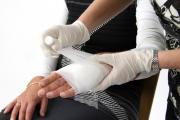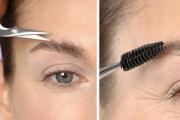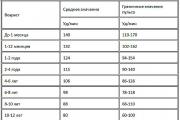Causes and treatment of heart palpitations, what to take
Article publication date: 12/24/2016
Article last updated: 12/18/2018
From this article you will learn: why palpitations (or heart rate - abbreviated as heart rate) can occur, is it dangerous. How is it treated, and is it always required.
A rapid pulse is considered to be from 90 beats per minute (in adults). In newborns, the heart rate should not exceed 150 beats per minute. In children under 10-12 years old - up to 120-130. In adolescents - up to 110 beats per minute.
The causes of heart palpitations can be different, and they are not always associated with. In some cases, a high heart rate may be normal and nothing needs to be done - but in most cases, treatment is still required.
By itself, a rapid pulse is not an independent disease, but a symptom of other disorders in the body. They are treated by such doctors as a cardiologist, arrhythmologist, cardiac surgeon, endocrinologist, nutritionist, sports doctor, neurologist, psychotherapist.
Primarily with a rapid pulse, consult a therapist.
Determination of heart rate
Why does the heartbeat increase?
Reasons for high heart rate:
- normal physiological processes;
- wrong way of life;
- congenital and acquired malformations of the heart and blood vessels;
- endocrine diseases.
During the day, the pulse can vary significantly. And if you notice that your heart is beating a little faster than usual, you should not immediately worry.
When is a fast heart rate normal?
Normally, the heart rate increases for the following reasons:
Usually such a frequent heartbeat is not even felt. Or you may notice it, but it will not be accompanied by other unpleasant symptoms (discomfort, chest pain, feeling of "jumping" the heart out of the chest, severe shortness of breath, etc.)
In this case, you don't need to do anything. This condition is not dangerous unless you have heart disease.
The heart beats more frequently during childhood and adolescence. If you notice that your child's pulse is faster than yours, this is normal. If the child himself is not worried about anything, you can be calm.
There is also the so-called idiopathic tachycardia. A condition when a high heart rate is associated with the individual characteristics of the body. Usually in this case, the heart rate deviates from the norm by 10-15 beats per minute. In this case, there is no reason that provokes a rapid pulse, and no health problems. In this case, too, nothing needs to be done, no treatment is needed.
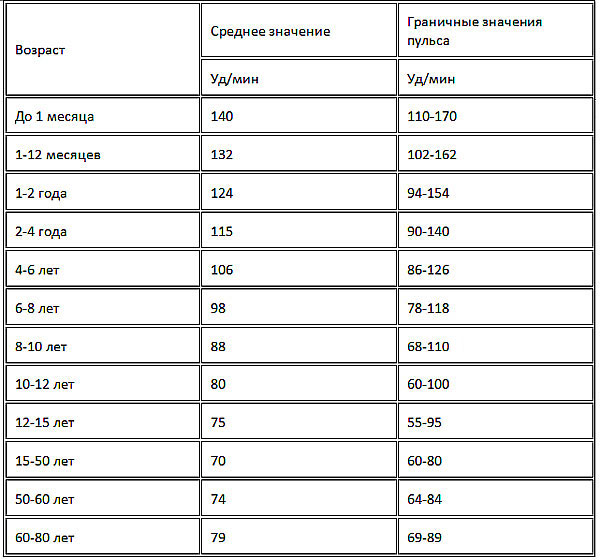
High heart rate due to unhealthy lifestyle
Tachycardia can be triggered by:
- smoking;
- malnutrition (a large amount of fatty, fried, spicy, fast food, lack of fish products);
- emotional or physical overstrain (stress at work or school, excessive sports loads);
- lack of sleep;
- drinking a lot of coffee or energy drinks.
In this case, contact a cardiologist and undergo an examination to determine if you have any diseases of the heart or other organs. If the doctors have not identified any pathologies, in order to normalize the heart rate, it is necessary to eliminate the causes that caused its increase.
To adjust the diet, you will need to consult a nutritionist. To draw up a further plan for physical activity, athletes will need a sports doctor. If you suffer from constant stress and sleep problems, see a psychotherapist.
If the wrong lifestyle provoked any diseases, treatment of the underlying pathology that caused tachycardia will be needed.
Increased heart rate due to disease
Tachycardia is a sign of many diseases of the cardiovascular system:
- chronic ischemia of the heart (it, in turn, is provoked by pathologies of the coronary vessels, for example, atherosclerosis or thrombosis);
- heart defects (and other valves, myocardial conduction disorders,);
- myocarditis (inflammatory process in the heart);
- transferred myocardial infarction;
- WPW syndrome (the presence of a bundle of Kent - an abnormal conduction path between the atrium and the ventricle).
In this case, heart palpitations are paroxysmal in nature. This is the so-called. It is accompanied by other unpleasant manifestations. A life-threatening type of arrhythmia may occur - ventricular fibrillation.
Often, the pulse can also increase due to disorders of the nervous system:
- neurocirculatory dystonia,
- vegetative dystonia.
These diseases are difficult to diagnose, as they are accompanied by many symptoms similar to other diseases.
Also, high heart rate can be a symptom of diseases of the endocrine system:
- hyperthyroidism;
- very rarely - hypothyroidism.
In this case, the pulse is frequent constantly, not in the form of seizures. Complications include flutter or atrial fibrillation.
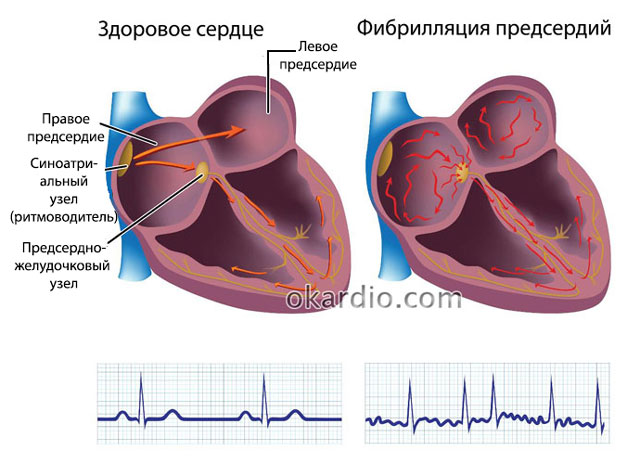
Symptoms that accompany palpitations
Other manifestations depend on what disease provoked a rapid pulse. To understand which doctor to contact and what to do, familiarize yourself with the manifestations of diseases, one of the symptoms of which is tachycardia.
Paroxysmal tachycardia with heart defects
It has clear time limits, that is, you can remember exactly when the attack started and when it ended. It can occur both spontaneously at rest and as a result of provoking factors (stress, physical activity, intake of substances that affect the cardiovascular system).
An attack of palpitations (up to 220 beats per minute) is accompanied by:
- dizziness;
- sometimes - fainting;
- tinnitus;
- a feeling of constriction in the chest and "jumping out" of the heart from the chest;
- sometimes - nausea and sweating.
During a paroxysm, flutter or ventricular fibrillation may develop. A prolonged attack can cause cardiogenic shock and cardiac arrest.
If you have noticed a paroxysm of tachycardia at least once, contact an arrhythmologist who will prescribe an additional examination, and then treatment (it will depend on the specific cause, in most cases it is surgical).
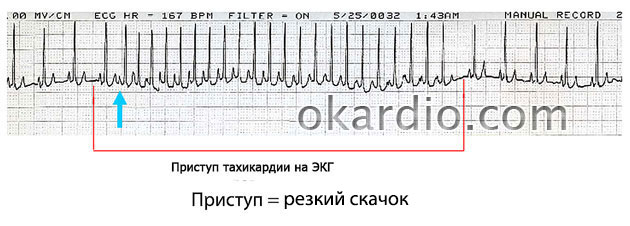
Tachycardia in disorders of nervous regulation
An increase in heart rate is observed with VSD and NCD (neurocirculatory dystonia).
Tachycardia with VVD is persistent (up to 140 beats per minute), the heart does not respond well to physical activity. Sometimes it is so bad that the patient cannot perform daily activities (walking for a long time, climbing stairs, etc.)
With NCD, an increased heart rate can be both constant and paroxysmal.
Manifestations of VVD, except for tachycardia:
- frequent dizziness and tinnitus;
- weakness and fatigue;
- sweating;
- intolerance to stuffiness;
- anxiety and suspiciousness;
- drowsiness;
- abrupt mood swings;
- temperature changes;
- panic attacks and obsessive-compulsive states are possible.
With pronounced psychological symptoms, the disease can be difficult to distinguish from neurosis or psychosis.
Manifestations of neurocirculatory dystonia:
- chilliness of the legs and hands;
- cold hands and feet, pale skin;
- fatigue, weakness;
- headaches and dizziness;
- low or high blood pressure.
Treatment of these diseases is symptomatic. It is carried out by a neurologist and a cardiologist.
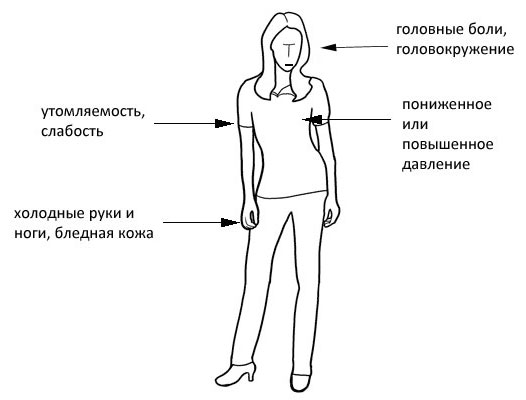 Symptoms of neurocirculatory dystonia
Symptoms of neurocirculatory dystonia Heart palpitations in endocrine disorders
Tachycardia is always accompanied by hyperthyroidism - excessive production of thyroid hormones. With this pathology, the heartbeat is constantly accelerated, the heart rate reaches 120 beats per minute, even at rest. The pulse does not slow down even during sleep.
The disease can be identified by the following symptoms:
- enlarged thyroid gland;
- stomach ache;
- increased appetite, despite this - weight loss;
- sweating;
- irritability, fatigue;
- violation of the menstrual cycle in girls, an increase in the mammary glands and a decrease in potency in guys;
- liver enlargement (reversible);
- elevated blood sugar.
If you find these symptoms in yourself, contact your endocrinologist.
Very rarely, persistent tachycardia can be a sign of hypothyroidism, but usually with this disease, the heartbeat, on the contrary, slows down.
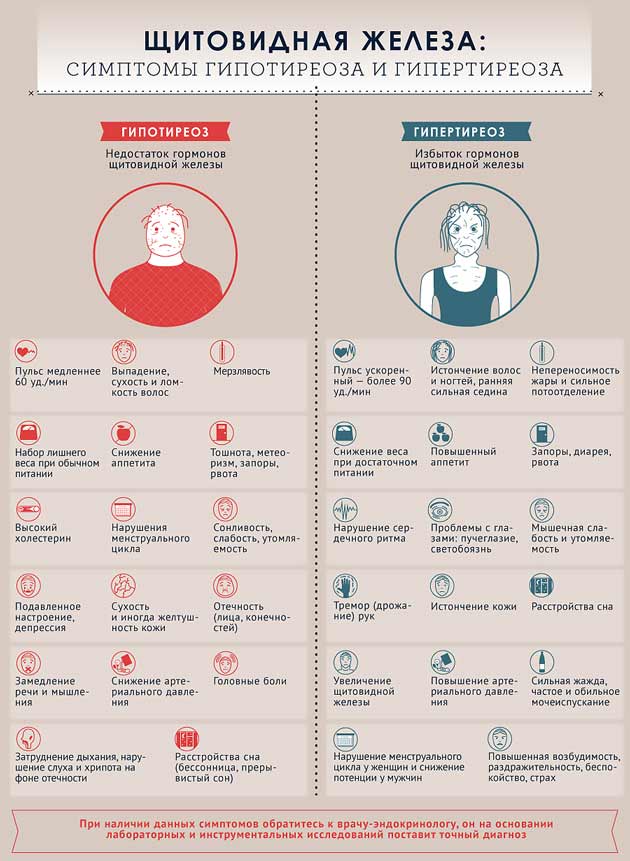 Click on photo to enlarge
Click on photo to enlarge Diagnostics
To identify the cause of tachycardia, doctors examine the heart, internal organs, blood, thyroid gland, and nervous system.
If you have noted an increased heart rate, which is accompanied by other unpleasant symptoms, consult a doctor (primarily a cardiologist, he can then refer you to other specialists).
To determine the cause of an increase in heart rate, you need to do:
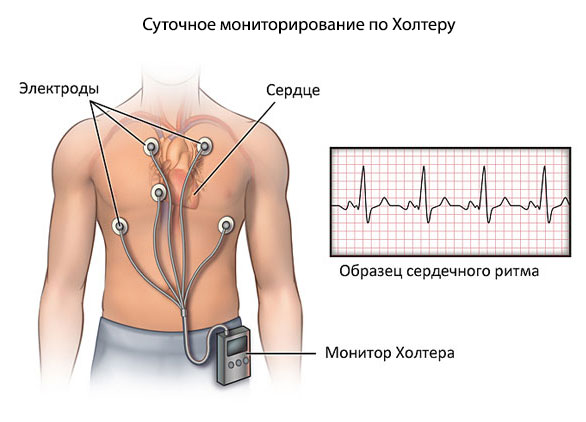
After studying the results of all tests, the doctor will prescribe treatment, depending on the identified disease. With endocrine or nervous diseases, you will have to take medicine, and with heart defects, surgery is most often performed.
After getting rid of the underlying disease, the heartbeat returns to normal.
How to treat tachycardia in various diseases
Heart palpitations can be cured completely by getting rid of its cause.
Elimination of heart disease
The causes and treatment of palpitations are strongly related: depending on the disease, increased heart rate is treated by different methods (conservatively or surgically).
Medical treatment
With heart defects, surgery is most often required, since medications do not eliminate the cause of the disease.
Surgical treatment of heart defects
What to do with paroxysm (paroxysmal tachycardia)?
If you experienced a tachycardia attack for the first time, immediately call an ambulance.
After removing the paroxysm, the doctor will inform you about how to act in case of recurrence.
As soon as you feel the onset of an attack, perform vagal tests in which you stimulate the vagus nerve:
- press on closed eyes;
- massage the carotid sinus (located under the lower jaw);
- press on the root of the tongue;
- hold your breath and wash yourself with cold water;
Before using vagal techniques, consult with your doctor to learn the correct technique for their implementation.
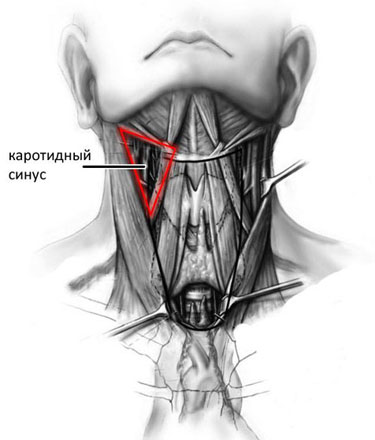
The doctor also prescribes to relieve an attack of tachycardia. Often it is Verapamil. However, it is contraindicated for WPW syndrome and some other diseases. In WPW syndrome, ATP is used intravenously.
Use antiarrhythmic drugs only as directed by your doctor. Improper use of them is life-threatening.
Treatment of VVD and NCD
The treatment of these diseases is symptomatic. Doctors prescribe drugs to relieve the symptoms that bother the patient the most.
If the tachycardia is severe, beta-blockers are prescribed (for example, Anaprilin).
If palpitations arose due to increased anxiety, anxiolytics (Phenazepam, Valium, Seduxen) or antidepressants with an anti-anxiety effect (Paxil, Amitriptyline) are prescribed.
The following procedures also apply:
- massage,
- pine baths,
- electrophoresis.
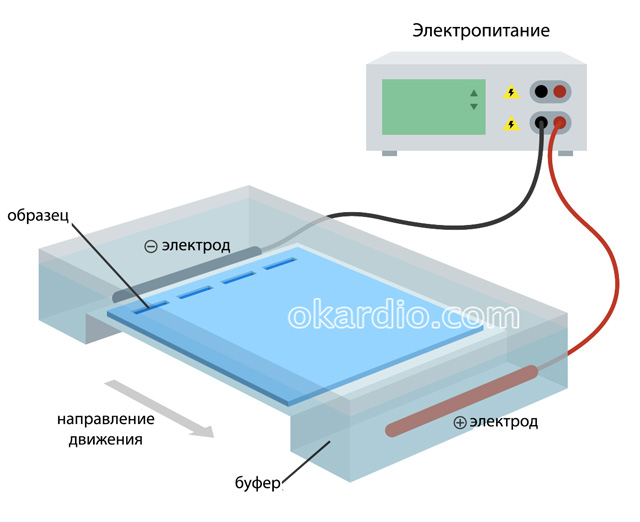 Apparatus for electrophoresis
Apparatus for electrophoresis Therapy for hyperthyroidism
For symptomatic treatment of tachycardia, beta-blockers (Obzidan) are prescribed.
Also, to eliminate hyperthyroidism, and with it tachycardia, follow a diet:
- eat more dairy and sour-milk products, vegetables, fruits;
- give up tea, coffee, cocoa, spices and chocolate.
Folk remedies for heart palpitations
They help well if the cause of tachycardia is VVD.
Before drinking decoctions, go through a diagnosis, as many herbs are contraindicated for heart defects.
In general, the prognosis for tachycardia is favorable. Heart palpitations can be completely eliminated by adhering to the recommendations for the treatment of the underlying disease.

